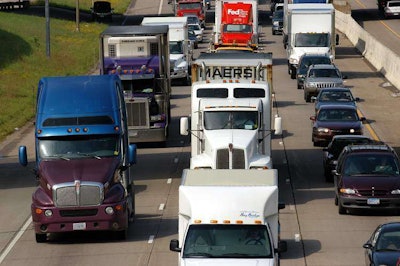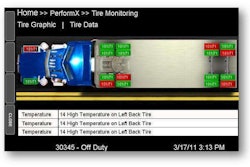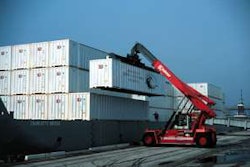
The U.S. Department of Transportation announced $417.3 million in grants to fund an array of efforts ranging from interstate maintenance to research into innovative bridge materials and construction methods.
“Transportation investments like these will create jobs, increase mobility, improve quality of life for all Americans and strengthen our national economy,” said U.S. Transportation Secretary Ray LaHood. “The demand from the states for these funds shows just how critical the need is for infrastructure investment.”
The Federal Highway Administration invited states to apply in June for federal funding from 14 grant programs. Requests poured in from every state, Puerto Rico and Washington, D.C. – more than 1,800 applications, totaling nearly $13 billion, which is more than 30 times the funds available.
“At a time when states are facing serious budgetary constraints, these grants will help fill a critical need,” said Federal Highway Administrator Victor Mendez. “Investments like these are immediate and long-lasting and will help create jobs.”
Among the grant recipients, North Carolina received $3.75 million to improve the I-40/I-77 interchange near Statesville. The project is the North Carolina Department of Transportation’s top priority and, when completed, will reduce traffic congestion and improve safety. When the current interchange was built in the late 1960s, it was expected to handle only 5,000 vehicles each day. Currently, the ramps carry about 70,000 vehicles per day.
Colorado received $3.76 million to help with accelerated bridge construction techniques that will speed completion of its replacement of the Pecos Street Bridge over I-70. These techniques will allow the bridge to be put in place all at one time, over a 50-hour period, instead of disrupting traffic over 12 months.
“The list of state highway projects in need of financial help grows almost daily,” Mendez said. “We are glad to see these funds put to use but recognize there is still much to do to meet America’s transportation needs.”
Congress created the discretionary grant programs to give FHWA the latitude to support projects that maintain the nation’s roads and bridges, improve roadway safety and make communities more livable. In previous years, Congress designated some of this grant money for specific projects, and FHWA awarded the remainder through a competitive process. Because the fiscal year 2011 budget passed by Congress last April directed that all such funds be discretionary, FHWA awarded these funds through a competitive process.












